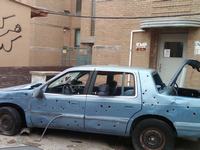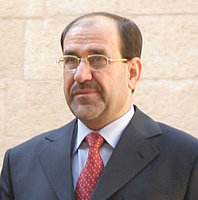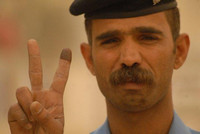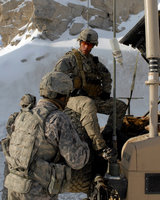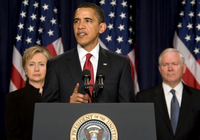
As a candidate, Barack Obama promised to withdraw from Iraq, “finish the fight against al-Qaida and the Taliban,” shut down Gitmo and break through the impasse with Iran. But as president, Obama is learning that conducting U.S. foreign policy is far more difficult than simply critiquing it. As a consequence, on the central foreign policy and national security issue of the day — the global struggle against Islamic terrorists and their patrons and partners — there is far more common ground between Obama and former President George W. Bush than Obama’s supporters expected, and less change than his opponents feared. […]

